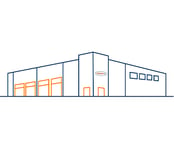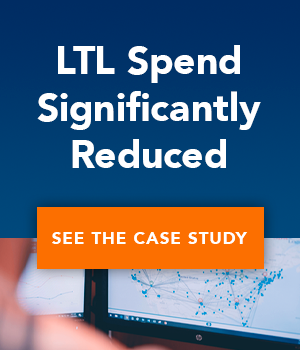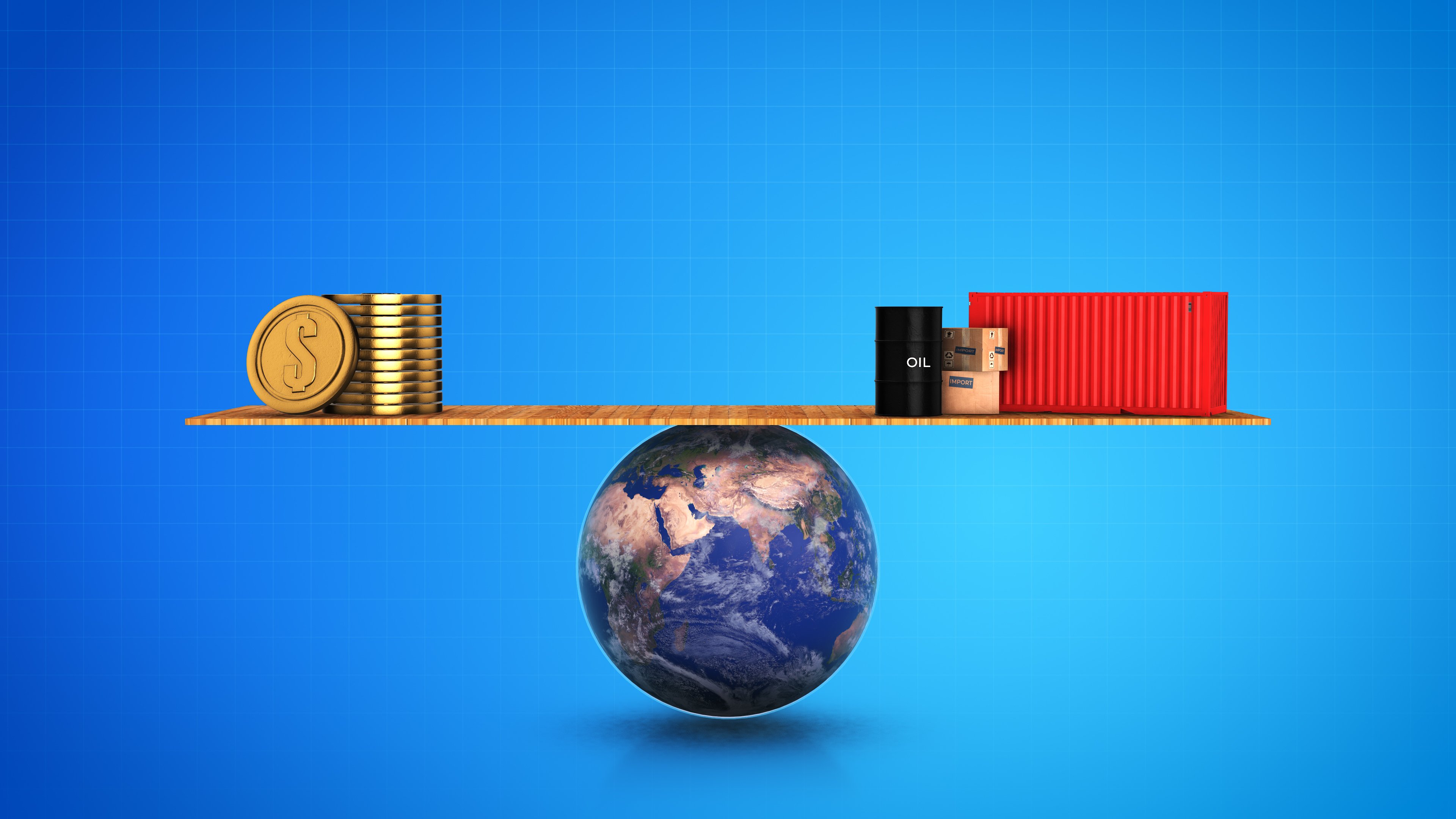Outsourcing logistics is a major business move that can reduce costs and transform operations for the better, all while enhancing the customer experience by enabling faster, more reliable shipping and delivery. Still, because the implications are so large and far-reaching, many business leaders with in-house logistics find themselves frequently wondering whether outsourcing is a better alternative but not making any progress toward real, positive change.
You see the gaps. You’ve heard of third-party logistics (3PL) providers. But where do you start?
We’re here to encourage you to explore the possibility of outsourcing logistics and, if it appears to be the right choice based on your business needs, take the leap—but not before surveying the landscape, of course. Even if your in-house logistics appear to be running smoothly, settling for the status quo can hinder growth and leave you vulnerable to supply chain disruptions.
Logistics is all about finding efficiency. Just like your business never stops, neither does the cycle of setting and measuring key performance indicators (KPIs), achieving goals, and seeking continuous improvement in how you operate. Learning the reasons for and basics of outsourcing logistics will give you the confidence to decide whether you want to outsource.
In-House vs. Outsourced
The thought of revisiting and restructuring your logistics can be overwhelming. Again, where do you start? Let’s take all the moving parts and variables out of the picture to give you a simplified starting point. Essentially, if you’re looking to consolidate and improve logistics, you’re deciding between investing in both a transportation management system (TMS) and warehouse management system (WMS) and managing them internally vs. partnering with a 3PL that will use its own TMS and WMS to run your logistics.
Pairing TMS and WMS software gives you all the tools and features to better manage logistics. These programs are to transportation and warehouse management what QuickBooks is to accounting and Salesforce is to sales. TMS platforms have evolved to become impressively robust and integrated, encompassing ratings and contracts, order planning, optimization, load tendering and sourcing, tracking, reporting, and financials. WMS platforms digitize inventory, shipping, and labor, much of which might otherwise be relegated to stacks of paperwork that can be difficult to keep track of.
If you’re leaning toward keeping logistics in-house but want to make improvements to your operations, a TMS and WMS might be the missing pieces, especially if you’re operating a sizable business and haven’t updated your technology in some time. With a TMS, your team will be able to track inventory and deliveries more efficiently, which can potentially help lower freight costs by showing the best options for routes and rates and by improving order accuracy. The added visibility might also uncover other opportunities to save on shipping. Meanwhile, a WMS can help pinpoint inventory inaccuracies and curb rising labor costs. However, it’s important to recognize that cost savings with a TMS and/or WMS rely on the software being used correctly and decisions being made accordingly, and those two systems must speak to each other to work effectively.
If you’ve thought about outsourcing your logistics, a TMS and WMS keep you in your current state of insourcing, just with better technology. That technology doesn’t operate itself; it takes a team of experts to put a TMS and WMS to work for your business. Even seasoned IT professionals need time and training to learn these systems and then program the necessary automated actions.
A large enterprise can certainly justify purchasing a Tier 1 TMS to implement and run internally. However, this could prove to be a challenge. Many TMS and WMS customers struggle to integrate their new software into existing enterprise-level systems. Then, they must train staff to manage key functionalities such as appointment setting, load building, contract management tools, and the tender process. And while the software provides a world of data, that data can be difficult to find and apply without knowledge of how to operate the system.
Aside from the learning curve, a TMS also requires another key aspect of logistics: relationships. Without relationships, it’s nearly impossible to select the right carriers and negotiate the best rates. If your team is able to build new relationships with ideal carriers, each relationship will be another for them to manage, ultimately requiring you to hire additional staff and deal with transitions whenever key team members leave.
When it comes to outsourcing logistics, a 3PL like ODW Logistics will manage transportation and warehousing for you while staying in constant communication to evaluate, optimize, and scale order fulfillment. At ODW, we also provide supply chain design, which many businesses are leaning into for more resilient supply chains, applying lessons learned from the pandemic. Supply chain design combines location selection, transportation network analysis, and engineered warehousing to set your business up for success.
To recap in the simplest terms: TMS and WMS = software. 3PL = strategy and service.
Benefits of Outsourcing to a 3PL
While internal TMS and WMS integration can make your logistics management more efficient, it still structurally retains the load on your team’s shoulders, whereas outsourcing logistics to a 3PL takes much of the load off. The benefits of outsourcing to a 3PL include:
- Skilled knowledge – Partnering with a 3PL gives you access to industry experts and perspectives that you don’t get in-house. You’re adding an extension to your team, without having to train, oversee, or manage them in the day-to-day. People who work at 3PLs truly love logistics and take pride in solving challenges. That’s not to say your team doesn’t have the same passion and work ethic. It’s just the nature and overarching benefit of outsourcing anything—you get the best in the business and the sum of their wide-ranging professional experience.
- Load building – Are you designing and building the most efficient loads to maximize your efficiency and trailer utilization? Ask a 3PL how they approach load building and order optimization. It will help you understand the strategy around order planning and how it can drive value and cost controls in your network.
- Day-to-day transportation and warehouse management – Your 3PL will take on day-to-day transportation management with its own sophisticated TMS and WMS. They will give you visibility into real-time rates and data, without the responsibility of having to manage a TMS and WMS on your own.
- Freight bill pay and audit – As part of transportation management, a 3PL can also review and manage your freight contracts. This can lead to additional cost savings found in billing errors and/or rate comparisons.
- Carrier and vendor scorecards – 3PLs evaluate carriers and vendors through scorecards that drive accountability and performance. Scorecarding helps identify which carriers are best for your business and build lasting relationships with those carriers.
- Value-added services – When a 3PL takes on your warehousing and distribution, they are positioned to support your business in many functional ways, including display builds, kitting, custom labeling, firmware and software updates, product testing, multi-packs, repairs, product consolidation, and more.
All the above benefits tie back to efficiency, in turn enabling cost savings and scalability that few organizations can achieve with in-house logistics.
Choosing a 3PL
So, you’ve decided to seek out a 3PL to be your logistics partner. You do some Googling and see pages and pages of options. Maybe you read some reviews or ask around for recommendations, but at the end of the day, all the web pages and services seem the same. How do you find the right 3PL for your business? As you’re contacting 3PL providers, consider these guiding questions and factors:
- What level of support are you looking for? Do you just need a freight broker, or do you need a true strategic partner? – Take a step back and determine what success looks like for your company and how outsourcing logistics will help you attain your short- and long-term goals. A freight broker moves product for an agreed-upon cost, which can be a simple and immediate benefit to your company. A 3PL, meanwhile, serves as a strategic partner in building out your logistics for long-term goals and value.
- How much time and attention are you willing and able to provide your 3PL during onboarding and then in the daily flow of business? – Are you looking to hand off logistics and be mostly removed from the process? Do you want to hold the reins and find a partner who can execute your vision and needs? Are you looking for someone to help you figure out how your supply chain can better support your business today and in the future? Any of the above will take some time to get set up and onboard, and you should be ready to have transparent conversations about expectations with your partner as they do so.
- What are you spending on logistics now? – Logistics managers often focus on costs for operations, such as shipping, storage, and fulfillment, but overlook staffing, recruitment, and overhead business costs as part of their logistics spend. It’s important to see the big picture to gauge the value a 3PL will bring and equip them with the data they need to price their services accurately and optimally.
- How will a 3PL contribute to your business in positive ways that can lead to cost savings beyond those relating to logistics? – A high-performing 3PL thrives on driving value back to your business in any way possible. Talk to your 3PL about how they intend to drive cost controls through continuous improvements.
- How will you go about resource management? – Especially in this day and age, many businesses have difficulty attracting and retaining staff. Not only that, but the cost per head is also higher than ever. With a 3PL, you’re mitigating staffing challenges by making them someone else’s (your 3PL’s) responsibility rather than your own. Your 3PL can also flex its labor based on your supply chain needs, scaling up during peak seasons and down during quieter periods.
- Does a given 3PL have experience working with customers in your industry? – It’s easy to think that shipping and warehousing are the same for any business, but that couldn’t be further from the truth. Fast-paced consumer goods move differently than big-box retail. Healthcare products require different handling than automotive parts. Make sure a prospective 3PL has experience working in your industry and the necessary certifications, procedures, and requirements that may be needed for compliance, storage, transportation, and safety.
- Does a given 3PL reflect your core values? Are they a culture fit? – At the end of the day, logistics is a people-based business. You and your 3PL will be working together toward your goals, so you need to mesh as people, professionals, and partnering organizations. Understanding a 3PL’s core values is an essential part of the selection process and will help you understand how they view their relationship with you.
- What level of transparency does a given logistics partner provide? How do they measure and report on their own performance? – Any outsourced logistics provider will give you information about how things are going. The difference is in the details. With a freight broker, you may gain visibility into bottom-line costs but not necessarily terms, carriers, or how much you’re “paying” the broker. With a 3PL, you’ll have deeper visibility into strategic decisions. In either outsourced relationship, it’s important to have someone internally who can interpret the data provided by your partner to hold them accountable for performance.
- What type of technology is a 3PL using? Are they investing in automation? – Most 3PLs have the latest software to manage transportation and warehousing. The edge that you get is dependent on you and your 3PL’s collaborative ability to put that data to work for you. The best 3PLs invest further in technology with solutions such as warehouse robotics and automated tendering to reduce errors, improve costs, and drive efficiency.
- What will be the timeline for implementation? – Communicate your expectations for implementation and allow your 3PL to manage those expectations accordingly. If a 3PL suggests they can immediately implement logistics for your business, it likely means they’re skipping steps. Agree to a reasonable timeline that doesn’t hold your business back too much for too long.
Before you begin contacting 3PLs, it’s a good idea to assemble an internal team designated to be involved in the process. As logistics impact every aspect of your company’s operations, each department in your organization should have a representative on the 3PL selection committee. As you’re interviewing 3PLs, keep a checklist handy with the questions above and others. See our full 3PL interview checklist here.
Industry Expertise Matters
Nestled in the list above is a key piece in finding the right 3PL to work with your business. Does a given 3PL have experience working with customers in your industry?
Why does industry expertise matter? Because different industries have different logistics. For example, outsourcing a cosmetics supply chain requires adaptability and flexibility to accommodate new product releases and distribution. Meanwhile, compliance is crucial, as labeling, ingredients, temperature control, and shipment volume are all regulated and constantly changing from one country to the next. Consumers also expect cosmetics brands to make returns easy and convenient, making a 3PL equally important for reverse logistics.
At ODW, we specialize in logistics for health and personal care products as well as food and beverage, consumer goods, and automotive and industrial manufacturing. Learn more about our approach to each core industry we serve.
What Is Integrated Logistics?
The best 3PLs take logistics to the next level with integrated logistics that connect every touchpoint, from procurement through fulfillment. Traditionally, the various departments within logistics have operated along a chain of hand-offs rather than as one cohesive unit. Integrated logistics can unlock even more visibility and cost savings, along with faster speed, better communication and data, and enhanced resilience in the supply chain. With an integrated program, your TMS connects with your WMS to streamline operations. Data integration can be especially powerful for improving supply chain performance. Once again, this is best left to a 3PL since it is highly complex to implement and manage.
What Is Freight Consolidation?
As a 3PL is looking for ways to lower your costs, you'll likely hear them talk about freight consolidation. This means they're assembling various less-than-truckload (LTL) shipments into full truckload (FTL) shipments. Freight consolidation helps reduce LTL costs by leveraging a 3PL’s relationships with carriers and synergies with customers. It allows you to ship smarter, faster, and more reliably, ultimately improving customer satisfaction. However, freight consolidation doesn’t happen overnight and requires extensive planning upfront.
For example, a major foot care provider came to ODW after seeing its LTL cost per pound rise to 46 cents. Customers were also waiting longer for their orders due to the slower shipping times of LTL compared to FTL shipments. We first conducted a transportation network study to identify opportunities for improvement. Then, we negotiated LTL rates on behalf of the client while building a freight optimization network. Finally, we implemented pool distribution and multi-stop truckloads, ultimately leveraging our network to consolidate the client’s shipments with other similar orders. As a result, we lowered the client’s LTL costs from 46 cents to 39 cents, sped up shipments by an average of 1.2 days, and enabled $430,000 in chargeback savings. Learn more about freight consolidation.
Outsourcing Logistics to ODW
Outsourcing logistics isn’t easy, but it doesn’t have to be daunting, and it shouldn’t be scary. At ODW, we engineer custom logistics solutions with transparency and personal touch. Wherever you may be in your decision-making process, our team is here to answer your questions and help you determine whether we’re the right 3PL for you. If you’re up for reimagining your supply chain, look to us for logistics, warehousing, transportation management, and more. Request a quote today.











